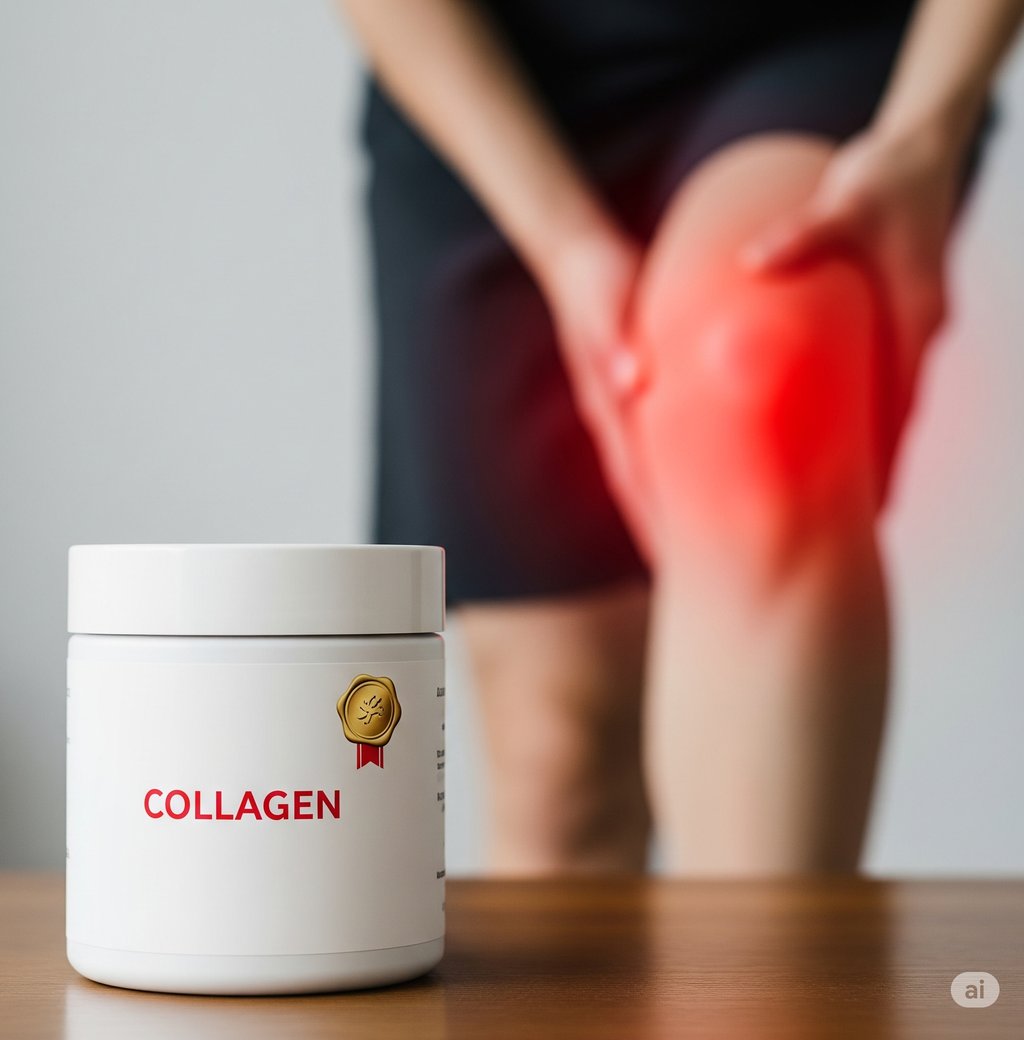Collagen: The secret for stronger muscles and a faster recovery?.
The Impact of Collagen on Performance and Recovery: The Truth Science Reveals
COLLAGEN
Nuri El azem De haro
8/27/20254 min read


If you're like me, you are always looking for ways to optimize your workouts, improve your performance, and recover faster to get back to giving it your all. In the world of sports supplements, collagen has gained immense popularity, and for good reason. Its attributed benefits range from younger-looking skin to healthier joints. But what is the truth about its power to improve our muscle mass and strength?
In this article, we're going to break down what the most recent science says about collagen and athletic performance. We'll rely on a comprehensive systematic review and meta-analysis published in the prestigious journal Sports Medicine in 2024(Kevin Bischof, Anna Maria Moitzi, Savvas Stafilidis, Daniel König. Impact of Collagen Peptide Supplementation in Combination with Long-Term Physical Training on Strength, Musculotendinous Remodeling, Functional Recovery, and Body Composition in Healthy Adults: A Systematic Review with Meta-analysis. Sports Med. 2024 Nov;54(11):2865-2888. doi: 10.1007/s40279-024-02079-0). This way, you can make an informed, evidence-based decision. Let's separate fact from fiction!
What is Collagen and Why is It Important for Your Muscles?
Collagen is the most abundant protein in our body. It is the main component of the connective tissues that form our tendons, ligaments, and the tissue that surrounds and connects our muscles (the intramuscular connective tissue). Think of it as the "glue" that holds everything together and is crucial for transmitting the force that your muscles generate.
Supplementation with collagen peptides (CP), which are easier-to-absorb forms of collagen, is based on the idea that we are providing our body with the "building blocks" (amino acids like glycine, proline, and hydroxyproline) it needs to repair and strengthen these musculotendinous tissues.
The Good News: What Science Says Collagen Can Do for You
The research is promising and suggests that collagen supplementation, combined with regular training, can offer significant benefits. According to the review of 19 studies with 768 participants, these are the most notable effects:
Increase in Muscle Mass (Fat-Free Mass): Long-term collagen supplementation showed a statistically significant effect on increasing fat-free mass (FFM). This has been observed in various groups, such as middle-aged men, premenopausal women, and older men with sarcopenia.
Improved Muscle and Tendon Structure: Collagen appears to improve muscle architecture and tendon morphology. More robust tendons can be key for preventing sports injuries.
Greater Maximum Strength: Participants who took collagen experienced a significant increase in their maximum strength.
Better Reactive Strength Recovery: An improvement was observed in the recovery of reactive strength (the ability to perform quick, powerful movements like jumps) 48 hours after intense exercise that causes muscle damage.
A Dose of Reality: The Limitations and What We Still Don't Know
For you to make an informed decision, it is crucial to be transparent about the limitations of current evidence. Although the results are positive, the certainty of the scientific evidence is rated as "moderate" to "very low" for the different benefits.
Evidence Certainty is Not "High": The evidence is considered "moderate" for improving body composition, "low" for increasing strength and recovery, and "very low" for improving the morphology and mechanical properties of tendons. This does not mean that the benefits do not exist, but that more research is needed to confirm them with greater certainty.
Results Are Not Always Consistent: Not all studies have found the same results, which creates some inconsistency.
It Does Not Seem to Help with Muscle Soreness: Collagen supplementation did not show a significant effect in reducing delayed-onset muscle soreness (the famous "DOMS").
The Optimal Dose is Still Under Study: Most studies used a daily dose of 15 grams. However, recent research suggests that 30 grams might be more effective at stimulating collagen synthesis.
How to intake Collagen for the Best Results
If you have decided to try collagen supplementation, here are some practical recommendations based on current scientific evidence:
Recommended Dose: A daily intake of 15 grams of collagen peptides is suggested.
Consistency is Key: To see results, it seems necessary to take it for at least 8 weeks.
Combine it with Exercise: Collagen is a complement to your effort. Its benefits are observed when combined with a regular physical training program, especially resistance or concurrent training.
With or Without Vitamin C? Some studies have added vitamin C to collagen supplementation, as it is essential for the synthesis of this protein. Although there are no studies that directly compare collagen with and without vitamin C, it might be a good idea to look for a supplement that includes it or ensure you have a good intake of this vitamin in your diet.
If you are looking for a high-quality collagen supplement to get started, click here to browse the available products and feel free to ask me if you have any doubt!. Anyway, I will leave a review of 3 really good products at the end of this article so you can make a better choice.
In Conclusion
Supplementation with collagen peptides, when combined with physical training, appears to be a promising aid for active adults and athletes seeking to increase their muscle mass and strength, improve tendon health, and accelerate reactive strength recovery.
However, it is not a magic formula. It is important to have realistic expectations and remember that the scientific evidence, while positive, is still developing. The key to success will always be consistency in your training and proper nutrition.
Frequently Asked Questions (FAQ) About Collagen and Athletic Performance
1. Does collagen really help with muscle gain?
Yes, scientific evidence suggests that collagen supplementation, combined with resistance training, can help increase fat-free mass, meaning muscle mass.
2. How much collagen should I take per day to improve my muscles?
The most commonly studied dose that appears to be effective is 15 grams per day.
3. How long does it take for collagen to work?
To see muscle and tendon adaptations, studies suggest a supplementation period of at least 8 weeks, always in combination with a training program.
4. Is collagen better than whey protein for gaining muscle?
Whey protein is rich in essential amino acids, especially leucine, which are crucial for muscle protein synthesis. A study that directly compared whey protein with collagen peptides found that whey protein was superior for increasing muscle thickness in untrained young people. Therefore, if your sole goal is muscle hypertrophy, whey protein remains the preferred option. Collagen, on the other hand, offers more specific benefits for connective tissues like tendons.
5. Does collagen help reduce muscle soreness?
According to the scientific review analyzed, collagen supplementation does not appear to have a significant effect on reducing delayed-onset muscle soreness (DOMS).
6. Who can benefit most from collagen supplementation?
Athletes who play sports that place significant stress on tendons, such as weightlifting, team sports like soccer or tennis, could especially benefit from collagen's ability to strengthen tendon structure and prevent injuries. It can also be beneficial for active adults looking to improve their body composition and overall strength.
And as said before, here are 3 great products that won´t dissapoint you:
